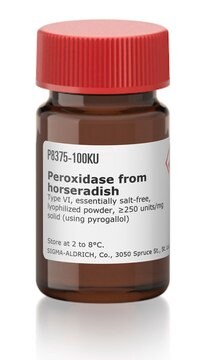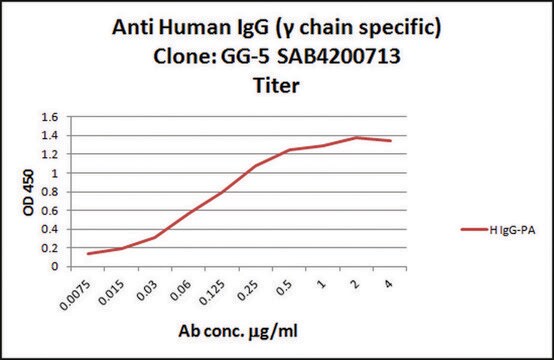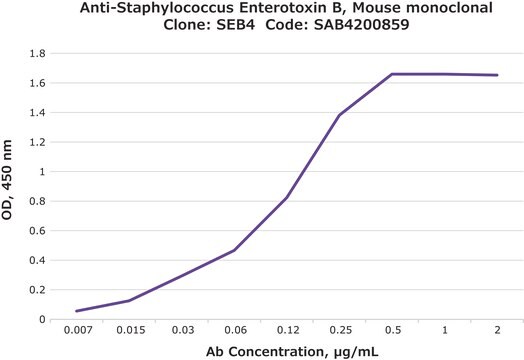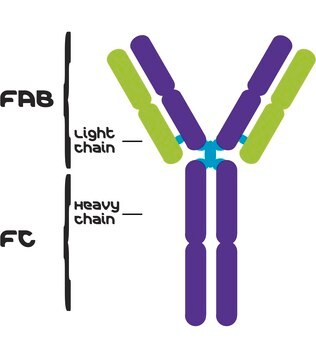SAB4200853
Anti-PBP2a of MRSA antibody, Mouse monoclonal
clone 38, purified from hybridoma cell culture
Synonym(s):
Anti-Beta-lactam-inducible penicillin-binding protein 2a
About This Item
Recommended Products
antibody form
purified from hybridoma cell culture
Quality Level
antibody product type
primary antibodies
clone
38, monoclonal
form
liquid
concentration
~1 mg/mL
technique(s)
immunoblotting: 0.5-1 μg/mL using whole recombinant PBP2a protein
isotype
IgG1
shipped in
dry ice
storage temp.
−20°C
target post-translational modification
unmodified
General description
Specificity
Application
Biochem/physiol Actions
Physical form
Storage and Stability
Disclaimer
Not finding the right product?
Try our Product Selector Tool.
Storage Class Code
12 - Non Combustible Liquids
WGK
WGK 1
Flash Point(F)
Not applicable
Flash Point(C)
Not applicable
Certificates of Analysis (COA)
Search for Certificates of Analysis (COA) by entering the products Lot/Batch Number. Lot and Batch Numbers can be found on a product’s label following the words ‘Lot’ or ‘Batch’.
Already Own This Product?
Find documentation for the products that you have recently purchased in the Document Library.
Our team of scientists has experience in all areas of research including Life Science, Material Science, Chemical Synthesis, Chromatography, Analytical and many others.
Contact Technical Service








